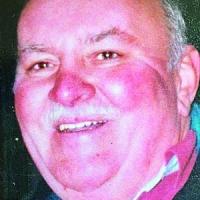July 29, 2021

Dorchester’s John Walsh, who died on July 6 at 81, worked relentlessly for affordable housing, crime prevention, and insuring that people of color and women got a fair share of construction jobs.
A native of the Bowdoin-Geneva St. Peter’s neighborhood, John was deeply rooted in the heavily Irish Catholic parish that raised and nurtured him through groups like the Holy Name Society and the St. Vincent de Paul Society to help the poor.
When his community started to change in the 1980s — with an influx of African Americans and immigrants from Cape Verde, Haiti, and Vietnam, among many other places— John embraced his new neighbors.
When he wasn’t busy at his day job of 45 years at the Sears Roebuck warehouse, he was very active as an organizer for the Greater Boston Interfaith Organization (GBIO), with a focus on his home parish. He was also deeply involved as a member of the Ward 15 Democratic Committee and the Dorchester-Roxbury Labor Committee, which sought to improve diversity on building projects and other jobs sites.
I met John when he was a leader at St. Peter’s. Fr. John Doyle, a Dorchester native (St. Mark’s parish) who had just been named pastor, put out a call for parishioners to help make the now largely Cape Verdean/Latino congregation a “church for the world.” John Walsh was just the man for the job.
I remember attending many meetings of this leadership team – approximately 25 Cape Verdean residents like Maria Barbosa and Latino leaders and two white men who still owned homes in the neighborhood – John Walsh and Charlie Millet. John set out diligently and in a systematic way to get to know these new neighbors through face-to-face meetings where he could build relationships and understand what their lives in this changing neighborhood were like.
And then he showed up to help improve those lives. When St. Peter’s held a meeting with over 75 neighborhood residents and leaders and 20 police officers, John was one of the spokespeople, sharing what was happening in the neighborhood and advocating for changes.
Longfellow Street’s Ed Cook remembers John’s no-nonsense approach during a meeting in the 1990s when Boston Police Department representatives referred to his neighborhood as “a high crime area.” John responded, without missing a beat: “And whose fault is that? Isn’t crime prevention your job?»
John served on the Greater Boston Interfaith Organization’s Education Team, which worked to put $2 million worth of instructional supplies and textbooks into the Boston Public Schools. He did not have children in the school system himself; however, he attended the meetings, listened to what was needed, and spoke out in support of change because it mattered to him that all children had what they needed to learn, grow, and prosper.
He also worked on GBIO’s campaign that won passage of the Affordable Housing Trust Fund by the Legislature and $20 million in funding (it’s now $40 million) to boost the construction of affordable housing.
Janet Jones became close friends with John as they helped to organize the Dorchester-Roxbury Labor Committee, which works to increase employment of Blacks and Latinos and women on construction sites. Together, they visited job sites in the neighborhood with an eye toward diversity and safety for workers.
“Those who knew him can well imagine how expert he became at drilling the contractors on their hiring & safety standards,” said Jones. It was never about a tweak here or there but, as he would always say: ‘We want to change the culture.’”
Steve Walsh, John’s first cousin who also grew up in the neighborhood, said that John “embodied the great things for Dorchester of knowing everyone.” He still saw his parish as the center of social life.
Steve noted: He was “a Christian who lived the golden rule of doing for others as the way to better yourself, too. Never took bows, but did what needed to be done. “
John’s niece, Brenda Long, who eulogized him at his funeral in St. Margaret’s Church on July 12, noted that John was passionate in his “fight for social justice”— a trait she attributed in part to his Irish roots. His father, she noted, was a courier for Irish rebels in Ireland’s fight for independence.
“Uncle Johnny fought for the underdogs and under-privileged of Dorchester and Boston,” Long said, noting that he was “never afraid to speak his opinion to whatever politician or authority figure he felt was feeding him bullshit.”
Long said John Walsh would often recall that his mother Mary (Carty) Walsh had no patience with fellow Irish immigrants who bristled at newcomers from other nations.
“Uncle Johnny always quoted my Grandma saying, ‘Johnny, They’re just like us. We’re all just trying to get along.’ I think that that was his mantra in trying to help give voice to the underrepresented.”
Lew Finfer is a Dorchester resident.



